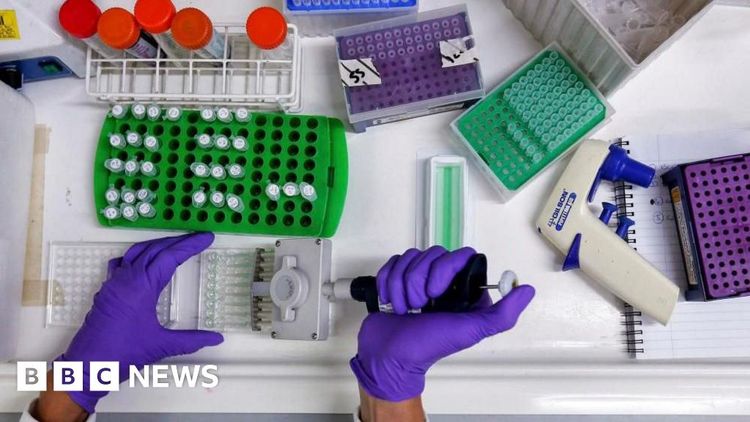Prostate cancer hopes raised after at-home spit test trials

Fresh research indicates that home saliva tests are superior to the typical blood test in detecting men who have an increased probability of developing prostate cancer.
The test that you can take at your own residence may detect genetic elements that increase the chances of men acquiring the illness responsible for approximately 12,000 deaths annually in the United Kingdom.
The research was conducted by the Institute of Cancer Research located in London, along with The Royal Marsden NHS Foundation Trust.
They were optimistic that the discoveries could "reverse the trend of prostate cancer".
The investigation has not been released in a specific periodical yet.
In the United Kingdom, there is no nationwide program for detecting prostate cancer due to the unreliability of blood tests that tend to identify non-dangerous types of the illness instead of more severe types.
Scientists think that an inexpensive and uncomplicated means of examination could aid in the detection of the ailment at an earlier stage, ultimately leading to the preservation of lives.
According to consultant urologist Prof Caroline Moore, it's easy for patients to provide a sample. They will receive a tube, put their saliva into it, and send it back.
Focusing on the identification and gentle approach to curing prostate cancer, she shared on Today, which airs on BBC Radio 4, the process of handling the specimens.
Scientists take the DNA out of saliva and study it to find a mix of genetic differences that could be connected to prostate cancer.
In the recent research, over 6,000 men from Europe who were between the ages of 55 and 69 were examined. This age range is known to have an elevated risk of developing prostate cancer.
Afterwards, a small group of men who were discovered to have genetic alterations in their DNA that suggested a greater possibility of getting sick, were subjected to blood and saliva examinations by the scientists.
The initial findings from the study indicate that the saliva examination generated lesser inaccurate identifications and detected a greater fraction of severe malignancies.
At present, individuals of male gender who desire to be screened for prostate cancer must liaise with their general practitioner and undergo a blood examination that evaluates their bloodstream's quantity of prostate-specific antigen (PSA).
However, it is apparent that the PSA test does not detect all types of cancer," according to Prof Moore. He also mentioned that the individuals participating in the research project had undergone the test and had shown no evidence of elevated PSA levels.
After undergoing an MRI scan and biopsy, it was found that 40% of men who had received elevated results from the saliva test were indeed suffering from prostate cancer.
According to the researchers, a mere 25% of guys who exhibit elevated PSA readings during standard blood tests will truly be diagnosed with prostate cancer.
The head of the Institute of Cancer Research, Professor Kristian Helin, has stated that the usual procedure of blood testing "may lead to men undergoing treatments that are not required and, even more concerning, it may not detect the presence of cancer in some men".
Naser Turabi, who is in charge of finding proof and putting plans into action at Cancer Research UK, expressed positive thoughts about the study. He said it was a good sign, but more exploration is required to verify whether this method can actually preserve lives.
According to Professor Moore, the following action needed to be taken would be conducting a significant screening research to determine the most effective examination or the most suitable mix of assessments. This involves considering spit assessments, PSA assessments, and MRI scans as a contemporary substitute for the rectal examination.
The initial discoveries were displayed at the yearly gathering of the American Society of Clinical Oncology (ASCO) held in Chicago.











































